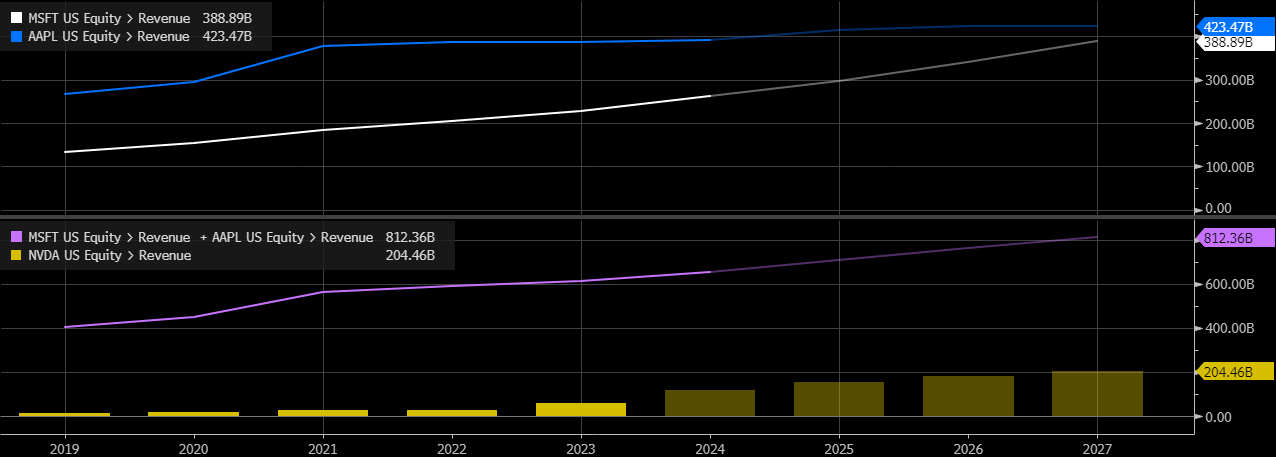Stock market today: S&P 500 shrugs off hawkish Fed minutes to snap losing streak
You wouldn’t be able to tell just by looking at the S&P 500 daily change of +0.02%, but yesterday was a pretty negative day, with the S&P 500 Equal Weight ETF (NYSE:RSP) finishing down by almost 70 bps. Even the Dow Jones was lower on the day by 55 bps. Most of the other market gauges were also fairly risk-off yesterday, and if not for Nvidia (NASDAQ:NVDA) being higher by almost 7%, I suspect the S&P 500 would have been closer to declines in the other indexes.
I’m not sure what yesterday’s price action says about the market overall, but it seems to be getting more and more crowded in one stock, and that does create significant risks to the stability of things. Certainly, credit spreads were wider yesterday, with the CDX High-yield index rising by 3.4 points to 331.70. This isn’t a huge move, but it wasn’t lower, and when spreads widen, that is a risk-off sign, not the euphoric price action seen in Nvidia stock yesterday.
Risk-Off Signals Are on the Rise
When looking at the CDX HY Spread Index, the RSI appears bullish at the moment, and there is a point coming when the CDX Index will break higher or lower based on that consolidation. Given how bullish the RSI appears to be if the CDX index moved higher, it wouldn’t surprise me one bit.
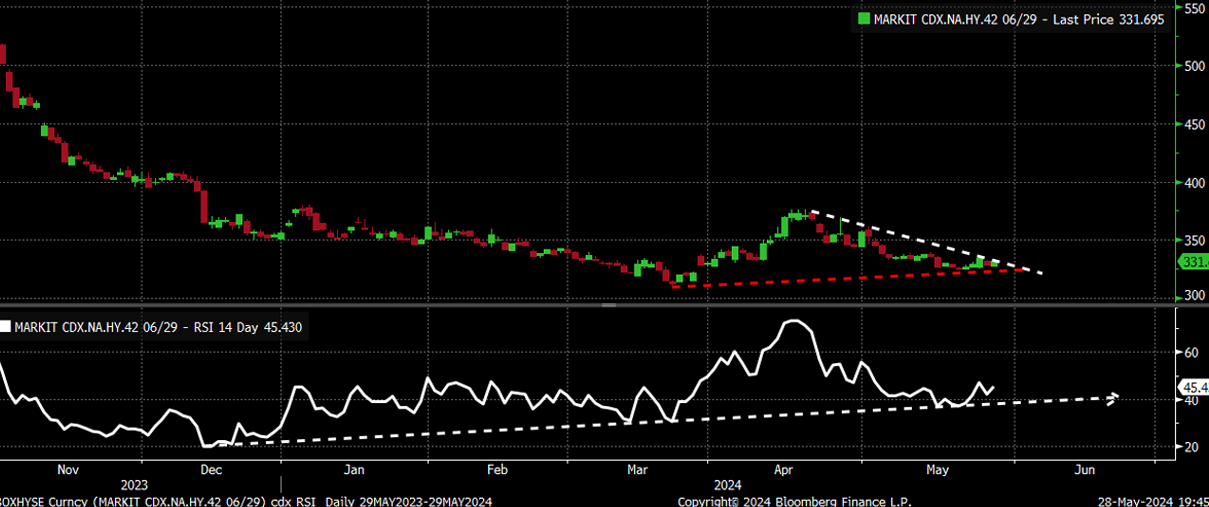
The price action in the USD/MXN yesterday was in agreement with high-yield spreads, with the USD/MXN also rising, a risk on/off gauge. A risking USD/MXN is a risk-off signal, in agreement with the higher spreads.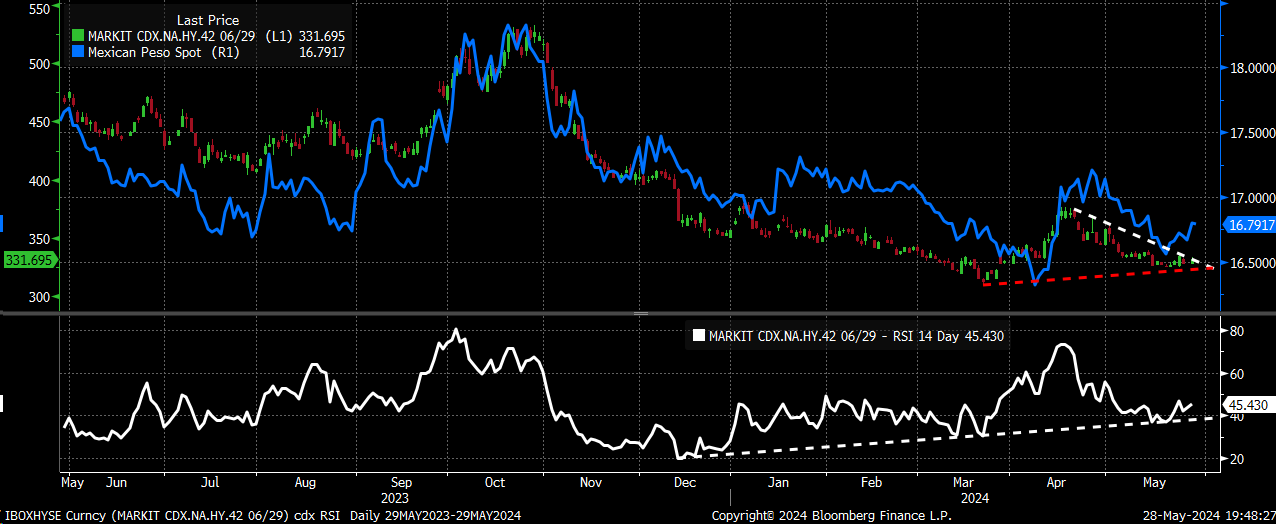
The VIX was also higher on the day, rising by around 4.5% to 12.90.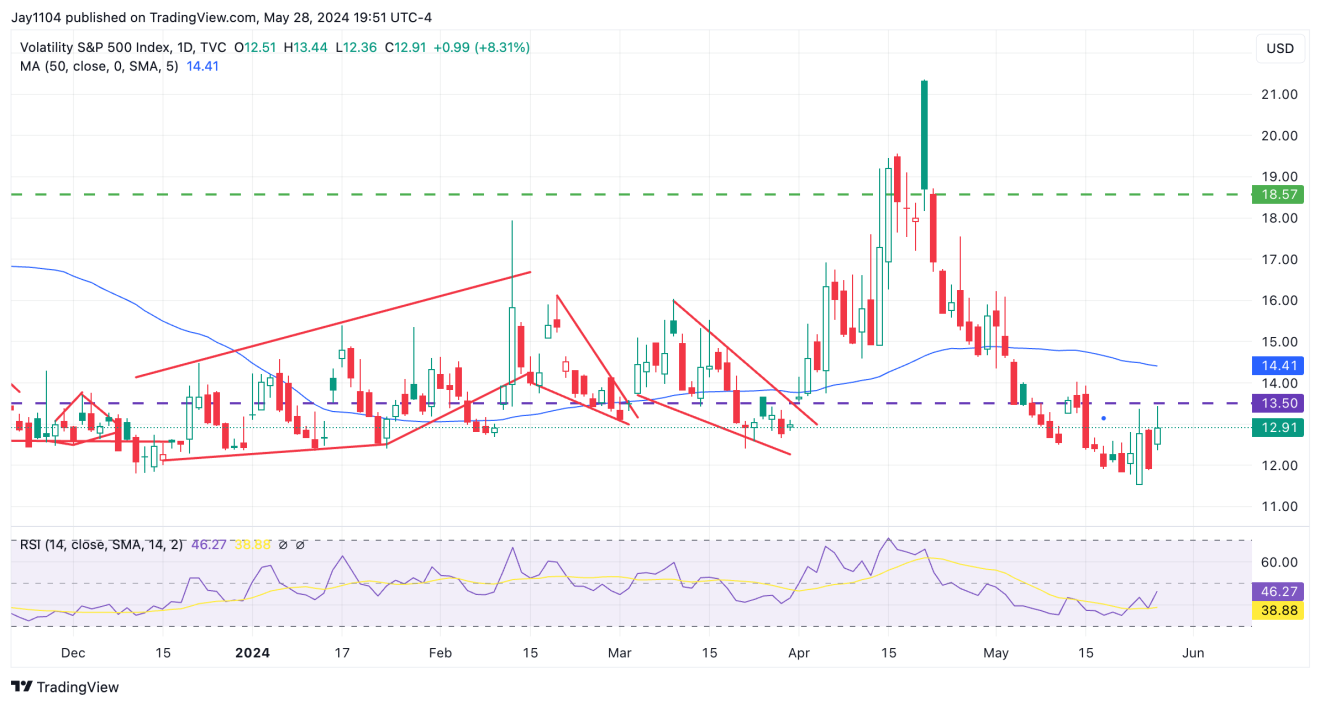
The 10-year rate was notably higher yesterday, rising by around 9 bps and moving back above 4.5%. It has cleared enough resistance that it could make a run back to that 4.7% level that we saw test just a few short weeks ago.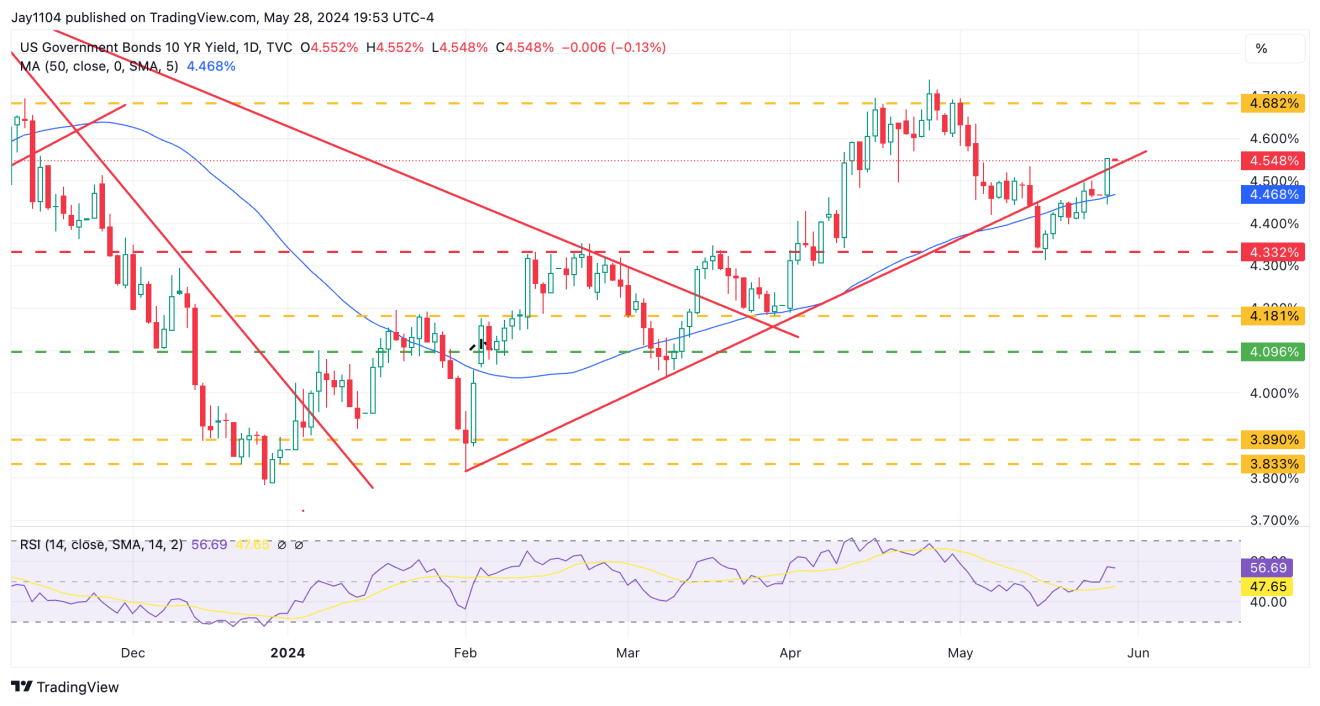
Nvidia's Rise Causing a Divergence
Looking at the above, one would have expected the stock market to be lower on the day, so it is not surprising that the Dow and Nvidia-less indexes moved lower. It was surprising that Dow closed below its 50-day moving average, which could mean nothing, of course. But it does go to show the divergences the one stock is causing across the market.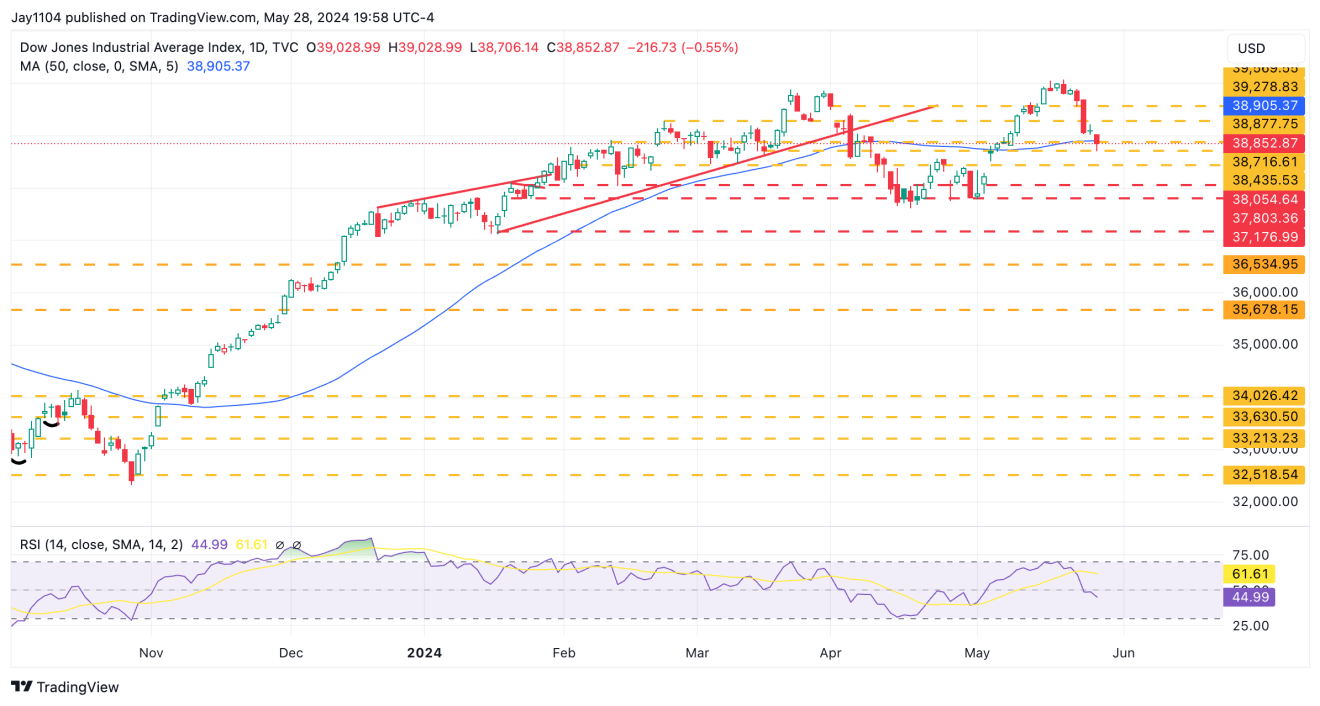
Nvidia's Valuations Are Now Sky-High
I’m unsure how much Nvidia should or could be worth; it will only be worth what investors pay to own it. Right now probably isn’t a good time to make such an assessment. Still, we have seen these types of moves plenty of times in the past: Cisco (NASDAQ:CSCO) and Qualcomm (NASDAQ:QCOM) in 2000 (the age of the Internet), Gilead (NASDAQ:GILD) in 2015 (Hepatitis Vaccine), and Tesla (NASDAQ:TSLA) in 2021 (EV), and while it has nothing to do with how good or bad the company is, it just comes down to that multiple that investors are willing to say is the right amount.
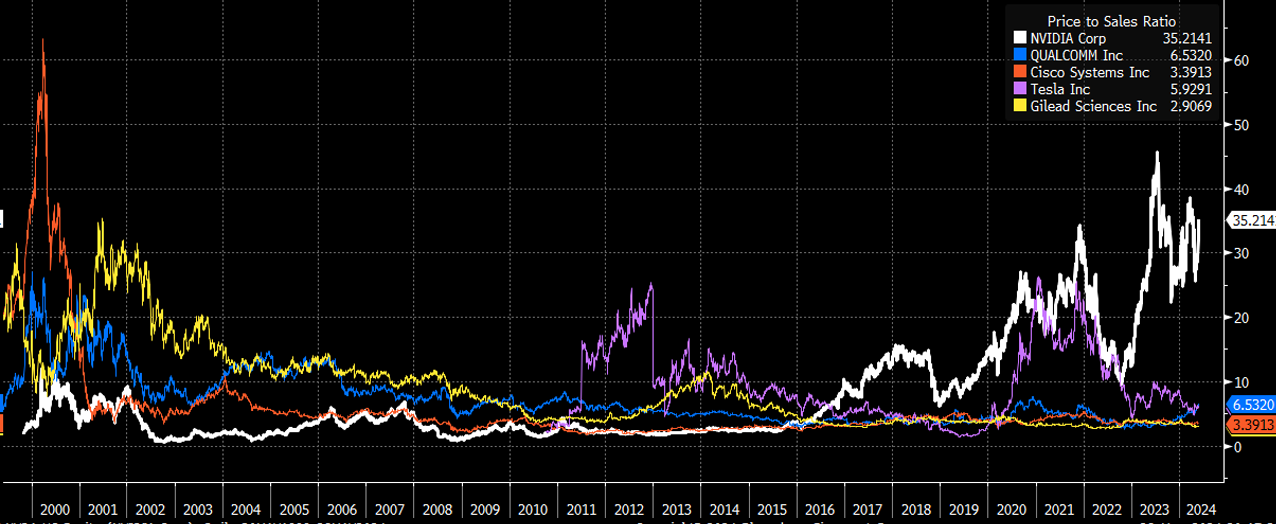
But by most standards, all those companies saw peak Price-to-sales ratios that decreased dramatically over time. However, at the current value of 35.2 times sales and a market cap of $2.8 trillion, Nvidia needs to grow revenue considerably from here.
Assuming the price to sales normalizes at 5x times sales five years from now, to afford a $2.8 trillion market cap, Nvidia needs to have revenue of $560 billion, which would be about equal to the size of Amazon's (NASDAQ:AMZN) revenue stream, and a little bit less than the combined expected revenue of Apple's (NASDAQ:AAPL) $387 billion and Microsoft’s $244 billion this year. Analysts see Nvidia’s revenue growing to $205 billion by 2028. So, at 35x times sales, things may be getting a bit stretched here.
History has taught us that the market is very good at picking winners and losers. However, typically, the market likes to overpay for those companies in the present. Then, as the final destination comes closer and the future becomes a bit more certain, the multiple starts to compress, and investors are no longer willing to pay those loft valuations. If the market realizes that Nvidia will not be able to grow revenue to a place to justify yesterday’s valuation, the music will stop. 